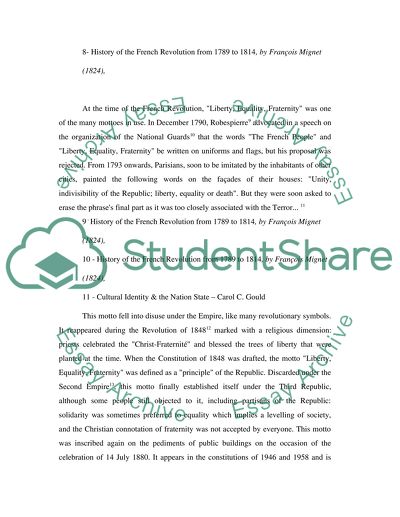Cite this document
(The French Revolution Case Study Example | Topics and Well Written Essays - 2750 words, n.d.)
The French Revolution Case Study Example | Topics and Well Written Essays - 2750 words. Retrieved from https://studentshare.org/history/1541612-french-commentators-often-see-in-republican-values-a-universal-path-towards-modernity-define-these-values-in-the-french-context-and-comment
The French Revolution Case Study Example | Topics and Well Written Essays - 2750 words. Retrieved from https://studentshare.org/history/1541612-french-commentators-often-see-in-republican-values-a-universal-path-towards-modernity-define-these-values-in-the-french-context-and-comment
(The French Revolution Case Study Example | Topics and Well Written Essays - 2750 Words)
The French Revolution Case Study Example | Topics and Well Written Essays - 2750 Words. https://studentshare.org/history/1541612-french-commentators-often-see-in-republican-values-a-universal-path-towards-modernity-define-these-values-in-the-french-context-and-comment.
The French Revolution Case Study Example | Topics and Well Written Essays - 2750 Words. https://studentshare.org/history/1541612-french-commentators-often-see-in-republican-values-a-universal-path-towards-modernity-define-these-values-in-the-french-context-and-comment.
“The French Revolution Case Study Example | Topics and Well Written Essays - 2750 Words”. https://studentshare.org/history/1541612-french-commentators-often-see-in-republican-values-a-universal-path-towards-modernity-define-these-values-in-the-french-context-and-comment.


